Operation Northern Arrows. Why Israel launches ground operation in Lebanon, its goals
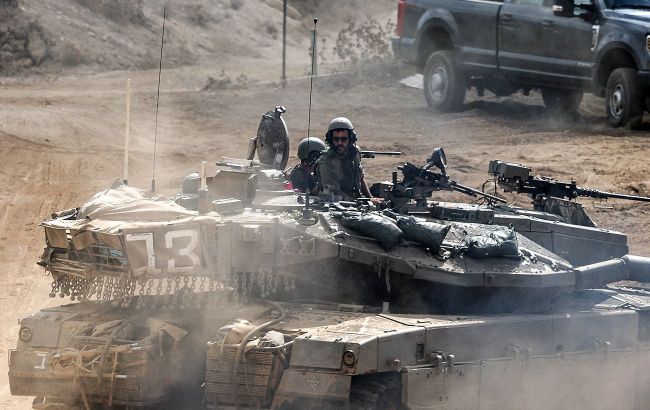 Photo: Israeli soldiers at the border with Lebanon (Getty Images)
Photo: Israeli soldiers at the border with Lebanon (Getty Images)
The ground phase of Israel's war against the terrorist group Hezbollah has indeed begun. Ground troops have entered Lebanese territory as part of Operation Northern Arrows and appear to intend to deliver a decisive blow.
RBC-Ukraine outlines what you need to know about the beginning of what may be Israel's Third Lebanon War.
Contents
- What is known about Israel's operation against Hezbollah
- What preceded the ground phase
- What is Hezbollah and what is the essence of the conflict with Israel
- What caused the escalation and the objectives of the new operation in Lebanon
- How long can the ground operation last
What is known about Israel's operation against Hezbollah
The Israeli Minister of Defense, Yoav Galant, announced the beginning of a new phase of the war against Hezbollah the day before. According to him, it will be a significant factor in changing the security situation.
In the evening, the Israel Defense Forces (IDF) closed the area around three towns - Metula, Misgav Am, and Kfar Giladi - near the border with Lebanon. At the same time, the Air Force attacked strategic targets in Beirut, resulting in the collapse of eight high-rise buildings in the Dahieh neighborhood. According to Israeli statements, the strikes targeted arms factories and other military infrastructure.
Shortly after that, it became known that the political leadership approved the ground phase. Information about the start of Operation Northern Arrows was cleared for publication around 02:00 AM, although raids in the border area had already been ongoing for several hours.
According to official statements, the operations are limited and targeted (based on accurate intelligence). "These targets are located in villages close to the border and pose an immediate threat to Israeli communities in northern Israel," the IDF reported.
The Lebanese government army has decided not to engage in the conflict. According to Western media, it has retreated at least 5 kilometers. Observation posts on the border with Israel have been evacuated, and soldiers have been sent to their barracks.
The IDF press service emphasizes that the military entered southern Lebanon according to the General Staff and Northern Command's plans. Air and artillery support is being provided to ground forces. The 98th Division, including commando fighters, paratroopers, and armored vehicles from the 7th Brigade, is involved in the offensive. This division previously operated in the Gaza Strip.
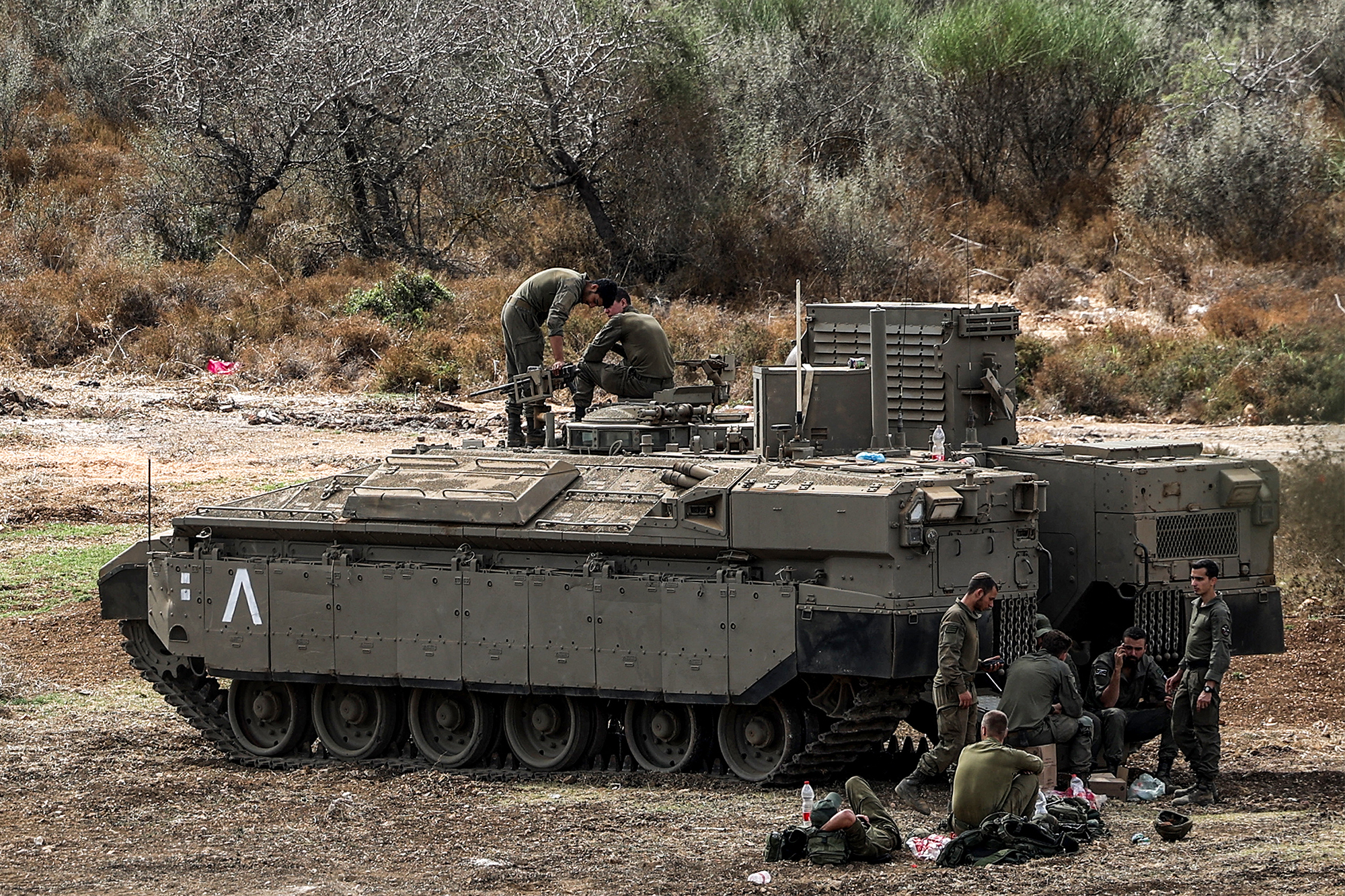
Photo: Israeli troops in the ground phase of the operation in Lebanon (Getty Images)
An attack on the Ein al-Hilweh camp was also reported. According to Reuters, the target was Munir Makdah, the commander of the Lebanese branch of the Al-Aqsa Martyrs' Brigade. Five people are known to have been killed, including Makda's son, while information about the fate of the leader is being clarified.
Avichay Adraee, a spokesperson for the Arab department of the IDF press service, published a statement to the Lebanese, warning them about the dangers of movement.
"There is intense fighting going on in southern Lebanon, in which Hezbollah operatives are using civilians as human shields to carry out attacks. For your personal safety, we ask you not to travel by vehicles from the north to the southern area of the Litani River," the warning states.
As of midday, the Israeli army continues to strike Hezbollah targets. Reports are coming in about destroyed rocket launchers and weapons storage bases.
Meanwhile, a Hezbollah media representative stated in an interview with the Qatari channel Al Jazeera that Israeli troops have supposedly not yet launched a ground operation in Lebanon.
What preceded the ground phase
In recent months, the conflict with Hezbollah seemed secondary compared to Operation Swords of Iron against Hamas in the Gaza Strip. However, everything changed in the last two weeks. Israel has effectively decapitated the group and depleted its rocket arsenals.
It remains unclear what forces will be involved in the ground phase, how long they will stay in Lebanon, and whether this will escalate into a full-scale war. According to CNN, citing a senior official, Israel does not plan a prolonged military presence, and there will be no long-term occupation of southern Lebanon.
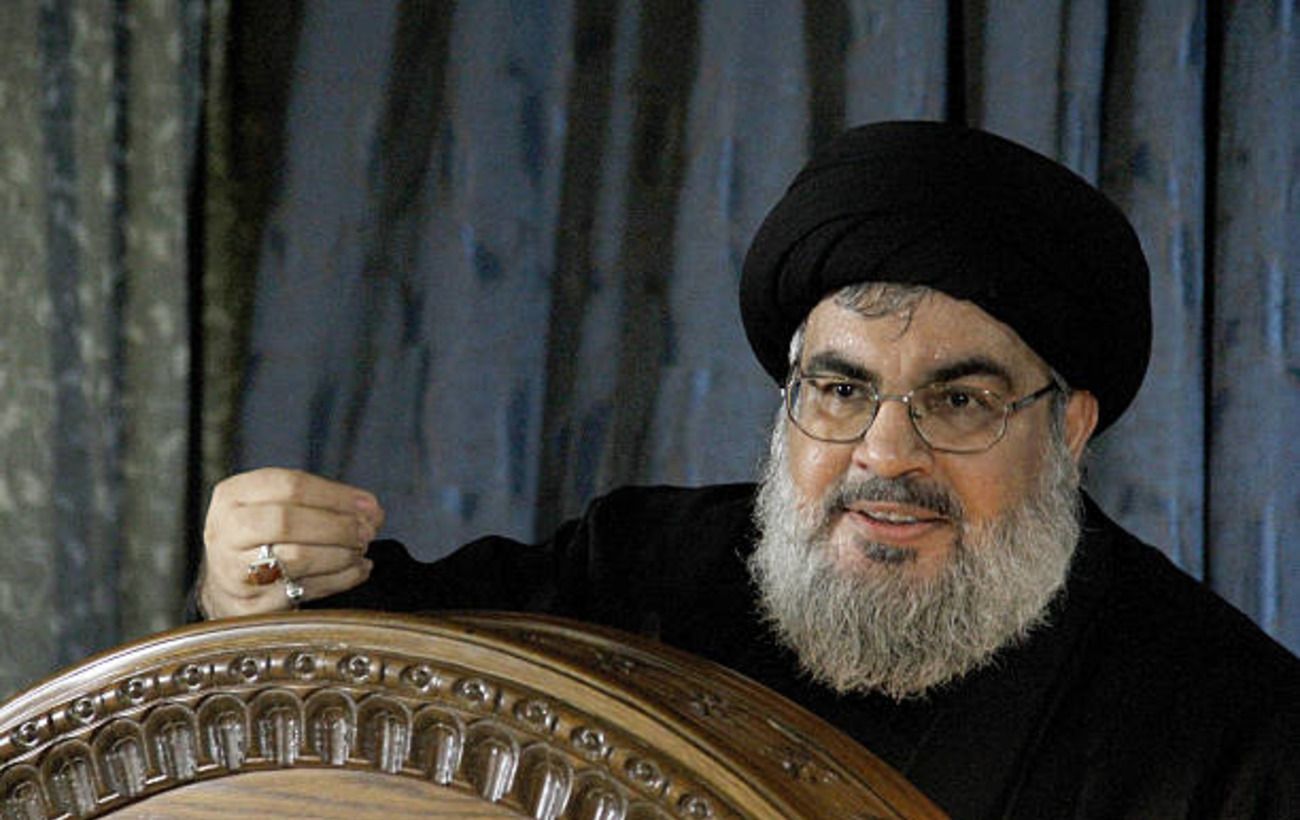
Photo: Before the invasion of Lebanon, the Israeli army conducted a series of attacks and eliminated Hezbollah leader Hassan Nasrallah (x.com/SH_NasrallahEng)
The ground phase followed a series of major attacks on Hezbollah. As a result, over a dozen high-ranking commanders were eliminated, and thousands connected to the organization were killed or maimed during a mass detonation of pagers and radios.
The most significant blow was the elimination of leader Hassan Nasrallah during an airstrike on September 28. During his long years of leadership, funded by Iran, Nasrallah transformed Hezbollah into a formidable military force.
Israeli Prime Minister Benjamin Netanyahu referred to Nasrallah as the central engine of Iran's "axis of evil." According to him, Israel is winning the war against its enemies.
"Nasrallah was not another terrorist. He was THE terrorist. He and his people were the architects of the plan to destroy Israel. He was not only operated by Iran; many times, he operated Iran himself," stated the Israeli prime minister.
What is Hezbollah and what is the essence of the conflict with Israel
Hezbollah is an influential Muslim Shiite political party and armed group. It has a significant presence in the Lebanese parliament and government, and it maintains an army that greatly surpasses the regular Lebanese forces.
Hezbollah emerged after Israel's invasion in 1982 and came under the control of the Iranian Revolutionary Guard Corps (IRGC). In 1985, it stepped out of the IRGC's shadow by establishing its armed wing, which attacked Israeli forces and their allies.
Israel's first Lebanon war ended in May 2000. Two years prior, the government, under international pressure, complied with a UN Security Council resolution demanding the withdrawal of forces from southern Lebanon. When the IDF left the country, Hezbollah claimed all the credit.
The second Lebanon war in 2006 was triggered by a deadly cross-border raid by Hezbollah. The fighting on Lebanese territory lasted about a month, during which Israel attempted to eliminate the threat but did not achieve its objectives. Hezbollah claimed victory and ignored a UN resolution calling for a retreat to the north of the Litani River, which would have created a security buffer zone.
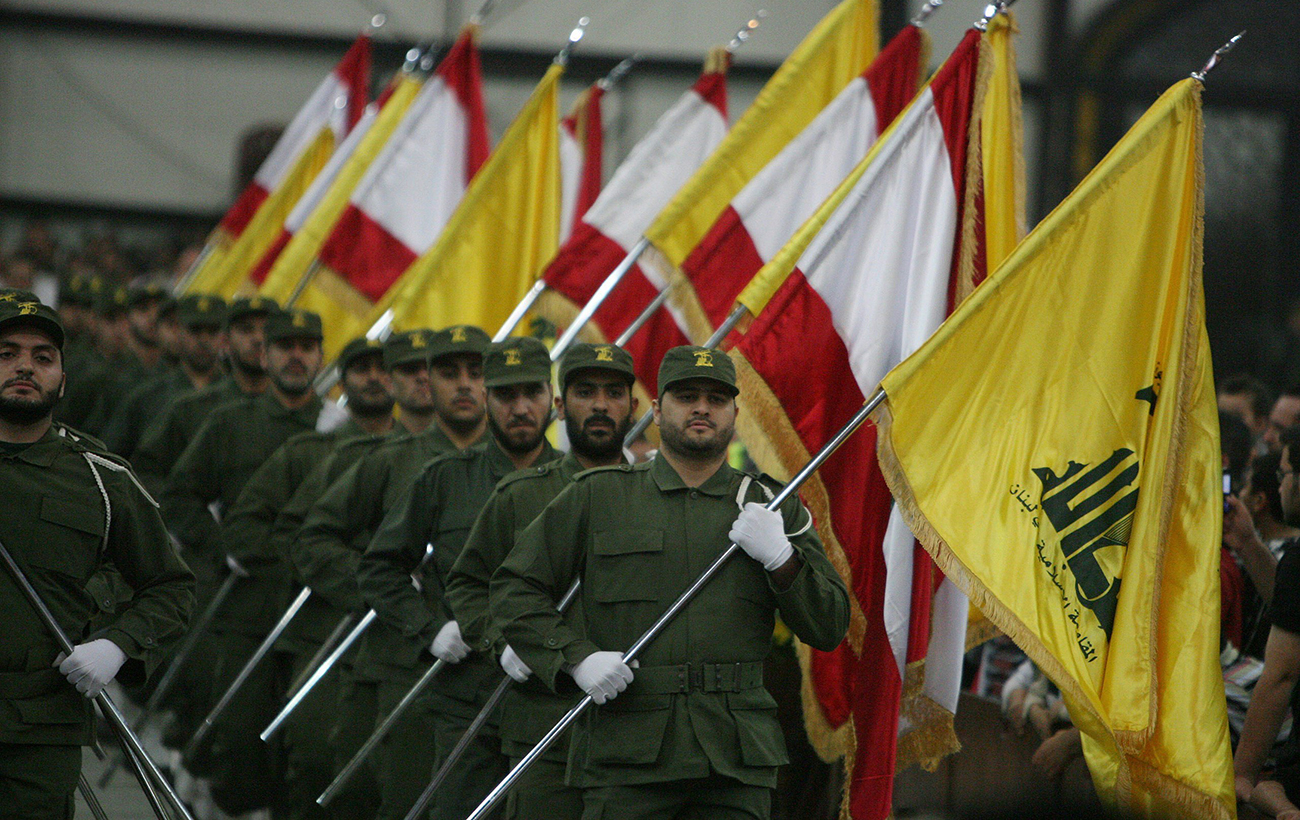
Photo: In recent decades, Hezbollah has become a major influential force in Lebanon (wikipedia.org)
Since then, Hezbollah has become Iran's main proxy force in the region, increasing its number of militants to, according to some reports, 100,000 (independent estimates range from 20,000 to 50,000) and acquiring over a hundred thousand rockets.
Since the 1990s, it has participated in national elections. In the 2022 elections, it lost its majority, but a new government has yet to be formed, and the group still has ministers in the interim administration.
Lebanon is deeply divided regarding Hezbollah. Although it has significant support, many accuse the militants of corruption and oppose their military capabilities. This is partly because it promotes and practices jihad, constantly calling for the destruction of Israel, asserting that the Jewish state has no right to exist as such.
What caused the escalation and the objectives of the new operation in Lebanon
The latest escalation began after the Hamas terrorists' attack from the Gaza Strip on October 7, 2023. The next day, Hezbollah announced that it would act in solidarity by starting to shell northern Israel. Rocket attacks have continued almost uninterrupted, along with retaliatory strikes.
During this time, dozens of civilians have died. However, since 60,000 Israelis from border regions have been living in evacuation for almost a year, support for more decisive actions has significantly increased. In mid-September, Defense Minister Yoav Galant announced that the "center of gravity" of the war was shifting from the south to the north. "Our mission is clear and simple: to return our citizens to their homes in the north," he said.
Other officials, including Prime Minister Netanyahu, have also made similar promises.
"We will continue to strike Hezbollah... The one who has a missile in his living room and a rocket in his home will not have a home," he stated.
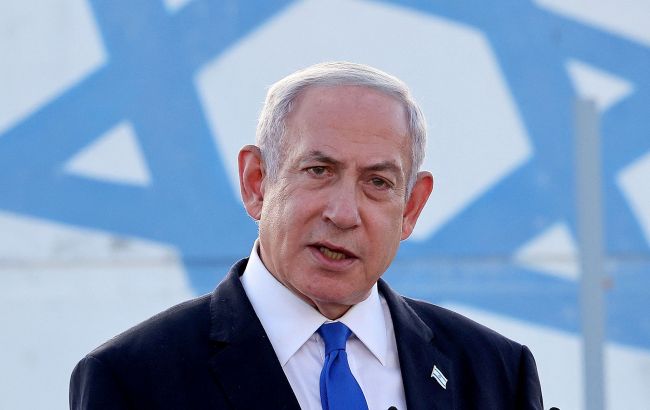
Photo: Israeli Prime Minister Benjamin Netanyahu promised to destroy Hezbollah (Getty Images)
Israeli journalist and chief editor of Luchshee Radio (Best Radio), Zvi Zilber, refers to the operation Northern Arrows as the Third Lebanese War for Israel. According to him, there is symbolism in the fact that it began today - exactly 18 years after the conclusion of the Second Lebanese War.
He also believes that the return of Israeli refugees to the north is only an officially declared goal.
"The true goal of the Third Lebanese War is for it to be the last Lebanese war. So that there won't be a fourth. Because Israel has absolutely nothing to divide with Lebanon; we have no territorial disputes," he told the RBC-Ukraine YouTube channel.
And to ensure that the current war is the last, Hezbollah must be defeated.
"I think we've already done that... Two weeks ago, we were more afraid of a war with Hezbollah than with Iran. All our military experts unanimously stated that Hezbollah poses a giant threat: 120,000 to 150,000 rockets, directed at us by Iranian precision-guided systems, covering the entire territory of Israel with varying ranges. They would destroy all our infrastructure, and we would be left without electricity, water, etc. I believe this was one of the reasons Israel has been waging a war of attrition against Hezbollah for almost a year," Zilber noted.
Hezbollah has been decapitated, its rocket arsenals destroyed, supply routes blocked, and the higher command has been de facto eliminated.
"There is no one to give orders, and no one to receive them, because communication means are down. That's why we see that Hezbollah's resistance is sporadic," he added.
How long can the ground operation last
Today, Hezbollah fired several rockets, and explosions were heard in Tel Aviv. In a statement from the militants, they claimed to have struck the military intelligence base at Gilot and the Mossad headquarters. They also reported an attack by Israeli forces in Metula with rockets and artillery shells.
Last night, a representative of the group, Naim Kassam, announced that Hezbollah has thousands of fighters battle-hardened in Syria and that they will surely win.
A "decisive response" is being prepared in Iran as well. President Masoud Pezeshkian promised a retaliation but did not specify what it would entail. "We cannot refrain from taking such actions, and they will not go unanswered," he stated regarding the ground phase of Israeli operations against Hezbollah.
Tehran may ask the Yemeni Houthis and other proxies to intensify attacks on Israeli and American bases in the region. However, it is likely to consider the fact that it cannot win a full-scale war if the US sides with Israel.
Neither Israeli nor Western officials are willing to predict how long the Northern Arrows operation will last. According to Zvi Zilber, Israel hopes for political changes in Lebanon. And considering that the regular army is not hindering Israeli forces from acting against Hezbollah, there is hope for that.
"If Lebanon can rid itself of Hezbollah as a political force and can elect a normal government, and sign a peace treaty with Israel, then the situation will change, and this will indeed be the last Lebanese war. If not, I feel very sorry for the Lebanese people who will remain with Hezbollah. But we will be forced to completely cleanse Hezbollah and get guarantees that we will not see them for many years. This is how we see this war," he told RBC-Ukraine.
Meanwhile, the Israel Defense Forces are advancing one to two kilometers into Lebanon, and it remains unclear whether they will push further. As for the timeline, it's difficult to discuss, especially since a year ago, few could have expected that the war against Hamas in the Gaza Strip would drag on for so long.
"So, I cannot say anything about when this war will end, nor how or when the Iranian regime will be overthrown. If such a miracle were to happen, the war could end very quickly. But assuming that this will not happen, I see no prospects for a political settlement at this moment. On the other side, we are fighting religious fanatics who say they don't care how many people become martyrs. The main thing is that they will not compromise their principles. And their principle is that Jews must be destroyed. This is who we are dealing with," Zilber added.
***
As reported by The Times of Israel, citing a senior official in the White House, Iran plans to attack Israel with ballistic missiles. "We are actively supporting defensive preparations to defend Israel against this attack. A direct military attack from Iran against Israel will carry severe consequences for Iran," he added.
The day before, Prime Minister Netanyahu sent a rare message to the Iranian people. He stated that the regime, which proclaims fiery speeches about protecting Lebanon and Gaza, is plunging the region deeper into war every day. He also mentioned that there is no place in the Middle East that Israel cannot reach.
"When Iran is finally free — and that moment will come a lot sooner than people think – everything will be different. Our two ancient peoples, the Jewish people and the Persian people, will finally be at peace," he added, urging Iranians not to support the group of "fanatic theocrats."
Sources: materials from Reuters, CNN, BBC, The Jerusalem Post, The Times of Israel, statements from Israeli Prime Minister Benjamin Netanyahu and Defense Minister Yoav Gallant, and comments from Israeli journalist and editor-in-chief of Luchshee Radio, Zvi Zilber.

